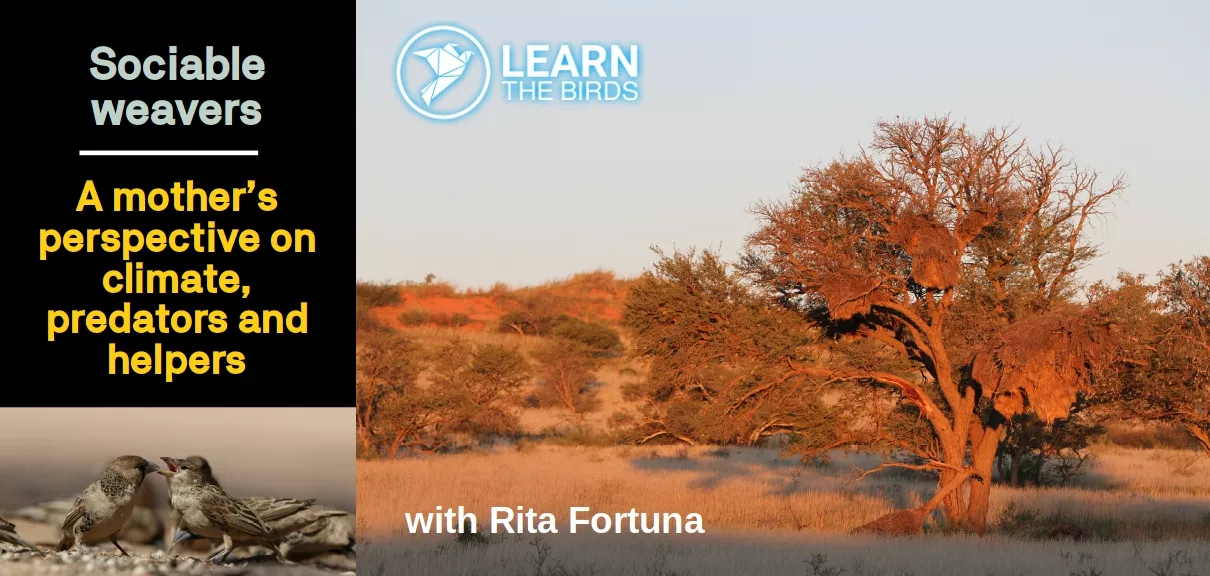
Sociable weavers: a mother’s perspective on climate, predators and helpers
PLEASE NOTE THE NEW DATE
In birds, mothers may use cues of their environment to adjust the quantity and quality of resources they allocate to offspring at each reproductive event, for example by laying more or better-quality eggs. These adjustments may benefit the mother if females allocate less resources to breeding when conditions are not ideal, and instead save energy for future reproduction or their own survival. But these reproductive decisions of mothers can also benefit offspring, if they better prepare the young for specific environmental conditions.
Rita will explore what we know, what we thought we knew, and what we still want to know about maternal reproductive strategies in the Sociable Weaver, Philetairus socius. In this species, parents can be assisted by a variable number of individuals – called helpers – that provide food to the chicks in the nest. We studied how the number, size and content of the eggs produced by females varied with the number of helpers, the climatic conditions and predation levels. For this, data was collected over several years in a long-term monitored population of sociable weavers in Kimberley, South Africa. Studies like these can help us to predict how harsh climatic conditions and high predation pressure can ultimately affect this bird population and the species more broadly, and whether breeding cooperatively can counteract some negative effects of living in harsh environments.
Additional Details
Webinar link - https://us06web.zoom.us/j/82468816057?pwd=MVFhRk4rSGZKcis5ZG81eHIvYis1QT09
Meeting ID - 824 6881 6057
Passcode - 592372
Check my time zone - https://www.starts-at.com/e/?t=1900&d=2022-08-18&tz=Africa/Johannesburg
Event platform - zoom
Interaction
Please leave your comments and questions in the chat during the webinar. The speaker will get to them at the end of the talk.

